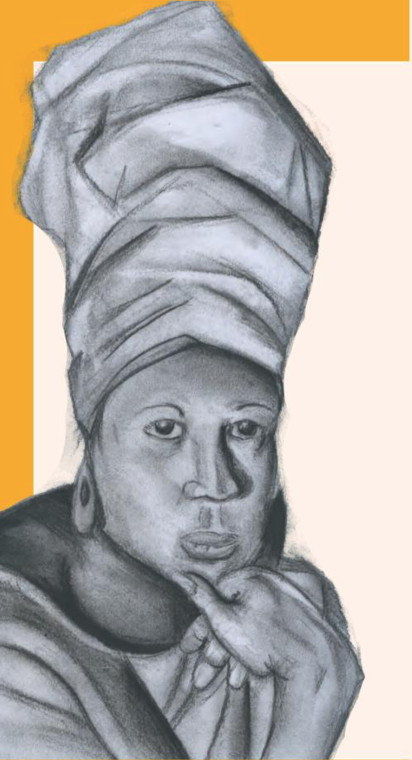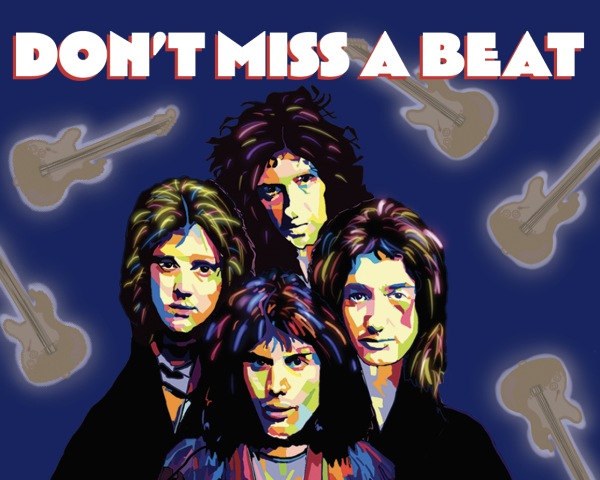Timeless Artists
6 MIN READAbove all, music is unifying; nothing brings a crowd of complete strangers together more than singing off-key, wholeheartedly and in unison to their favorite song by their favorite artist in concert. Although millions of individuals discover a passion in music, however, only a select few are lucky enough to share it with the world. Even rarer are artists who create music that makes a dramatic impact on its listeners and their lives. These special individuals are the only ones who have created music that will forever be considered timeless. Countless artists are considered exceptionally talented, yet the ones that earn the title of “timeless” are set apart from the rest. The lyrics of their songs enlighten, liberate, frighten and challenge their listeners. These musicians have the power to make sense of the personal experiences of their audience. Not only have they impacted their own genres, but have incorporated other genres into their music, transforming them as well. The music created by these influencers will forever be relevant and continue to stand for more than just a catchy melody. Here are a select few who meet the requirements of each genre.
Aretha Franklin
Aretha Franklin’s voice defines a generation; her music is a rare sound that evokes a sense of pride, love, empowerment and a history of rebellion and social reform. It has the ability to capture the soul of the listener. and reminds them of the emotions felt during times of political and racial upheaval. This includes the civil rights, women’s suffrage and anti-war movements in the US during the ‘60s and ‘70s. Franklin’s career began as a child gospel singer at a Baptist church in Detroit, Michigan. Although her devotion to her gospel roots continued to be prevalent in her life and music, she evolved into a sultry R&B artist, a powerful pop phenomenon and most famously, the “Queen of Soul”. This musical ambiguity led her to become the first female artist admitted into the Rock and Roll Hall of Fame. She is also known for her strikingly fierce and astonishing stage presence. Franklin’s legacy, however, is centered around more than her tremendous persona on stage, unforgettable lyrics and melodies and her unparalleled voice. She is also honored for her revolutionary influence on the female empowerment and civil rights movements.
Bob Dylan
Successfully achieving the unheard of feat of creating triumphant folk music that is adaptable for pop radio, Bob Dylan made a name for himself in the music industry. His songs were playful, yet carried depth that symbolized hard truths about relationships and human nature. Throughout his career, he wrote and performed countless folk-based songs which influenced the industry in the way that prominent pop artists; the likes of Cher, Elvis, Johnny Cash and Sam Cooke famously covered many of his songs. Dylan continually created music that played major roles in the cultural and generational movements of the mid ‘60s, such as protest and political anthems. His best known song, a surreal hit called “Like a Rolling Stone,” used thought-provoking language that was rarely found in a pop song and discussed the taboo subjects of homelessness and class, including in the renowned chorus “How does it feel?/To hang out on your own/With no direction home/Like a complete unknown/Like a rolling stone?” In 2016, he was awarded the Nobel Peace Prize in Literature, immortalizing the poetic expression he had through song which provided brutal glances at humanity and what it entails.
Prince
Name any aspect of music production and Prince has mastered it; singing, songwriting, production and guitar-playing, he excelled in it all. Today, most pop artists struggle to master even one of those categories through the course of their entire career. Prince’s voice sounds smooth and rich throughout all his albums, even while switching between different vocal personas: crooning sweetly, bluesy jazz, radiating desperation or experimenting with sounding like a cyborg. His unique ability to switch seamlessly between an insane range of five octaves is what made his songs first noticed by the public. With topics ranging from geopolitics to partying to reincarnation to love, Prince’s authenticity radiated from his performances and his refusal to conform to the standard of the other artists of his time. Because of this, Prince faced restrictive rules from record labels, causing him to rebrand himself. By changing his name to an unpronounceable “love symbol” he escaped oppression from the groups managing him. It was this quality of fiery perseverance that started a period in which he became “The Artist Formerly Known As Prince” and pioneered selling albums and concert tickets online, independent of a label. His personal struggle for artists’ rights kicked off the larger fight to protect their product and image, which continues to have a lasting impact on the music industry.
Miles Davis
Miles Davis was the ultimate jazz musician, encompassing qualities of an outrageous trendsetter and famous worldwide. Growing up in the ‘30s, a time filled with war and economic depression, Davis used his music to make sense of the world around him. This was shown in his playing style, which was very controlled and precise, reflecting the intense focus Davis dedicated to his work. His performances were rollercoasters of bright, soaring notes dropping off quickly into melancholy staccato rhythms. He filled his concerts with legendary, improvised solos, with seemingly discordant, yet gorgeous, chords and multiplex rhythms. This was during a time when very few other jazz artists were willing to experiment on stage. His effortlessly restrained sound was wanted by musicians of all genres, opening his horizons to bebop, avant-garde, hip-hop, fusion and hard bop. The styles he was inspired by and played during his career placed him at the forefront of movements within jazz.
Biggie Smalls
The Notorious B.I.G or Biggie Smalls, originally known as Christopher Wallace, is considered one of the most influential rappers of all time. Smalls discovered his interest for writing and rapping freestyle as a teenager living in Brooklyn. He began as a jazz saxophonist, which led to his talent for diction and phrasing. He started becoming known for his unique voice: raspy, soulful and gritty. In 1983, he caught his big break when his song “Party and Bulls**t” was featured in the movie “Who’s the Man.” His signature, witty, rhythmic pattern matching each beat was evident in that first song. Each song that followed was written from a vulnerable place, and contains raw and genuine content telling the unheard stories of those who also came from troubled backgrounds. This is clearly present in his song “Warning,” an example of his captivating storytelling abilities. The baritone flow of his voice was unpredictable, containing wordplay that could seem bizarre and out of place, constructing a style that was unique to his music. Today, the subgenre “mumble rap,” a controversial term used for current rap which is characterized for its often simple and inscrutable lyrics, is what usually tops the charts. However, Smalls manages to weave his way into the present-day rap scene with his original play on rhythm constantly being emulated. His legacy lies with his lyrics which pushed the boundaries of the rap genre, and gave an unparalleled insight into his view of the world.
Bob Marley
The line “one good thing about music, when it hits you, you feel no pain,” starts off Bob Marley’s hit song “Trenchtown Rock,” and many would say it is the perfect epitome of his music. Marley was an extremely successful reggae singer and songwriter, whose music became internationally and culturally iconic. He got his start in a group called The Wailers, who released some of the earliest reggae records. After spending years producing music with his band, he started up a solo career. In 1977, he released his most popular album, “Exodus”, containing hits such as, “One Love,” “Jamming” and “Three Little Birds.” Along with all of his success, Marley focused on infusing his music with his spirituality and wisdom, with lyrics such as “don’t gain the world and lose your soul/wisdom is better than silver and gold” and “none but ourselves can free our mind.” Marley is also known and cherished for his generosity and charity work, inspiring the Bob Marley Foundation which protects the earth, fights for education for all and invests time and resources into humanity’s well-being. Bob Marley is one of, if not the biggest, influencers on reggae, and is remembered by all as a spiritual, kind and brilliant soul.
Jimi Hendrix
No one would have expected a self-taught musician, as well as a high school and military dropout, to somehow be regarded as one of the most influential electric guitarists of all time. As an extremely talented singer and songwriter, Jimi Hendrix is one of the most celebrated artists of the 20th century. Hendrix’s career was short-lived, spanning about four years until his tragic and fatal drug overdose. Nevertheless, he managed to alter the world of rock music, producing a number of hits such as “Purple Haze,” “Hey Joe,” “The Wind Calls Mary” and “Along the Watchtower.” He received various awards, including Rolling Stone Magazine’s “Performer of the Year” in 1968. Inspired musically by American Rock and Roll and electric blues, he is known for popularizing the previously unwanted sounds of guitar amplifier feedback, and was one of the first guitarists to introduce tone altering effects, such as “fuzz tone,” in their music. Rolling Stone declared that “Players before [Hendrix] had experimented with feedback and distortion, but [he] turned those effects and others into a controlled, fluid vocabulary every bit as personal as the blues with which he began.” Hendrix will forever remain someone who largely impacted the evolution of rock music, shaping it into what it is today.

Aside from it’s design, Jessica Weiss became a staff writer for C Magazine because of her strong interest in the journalism program.









